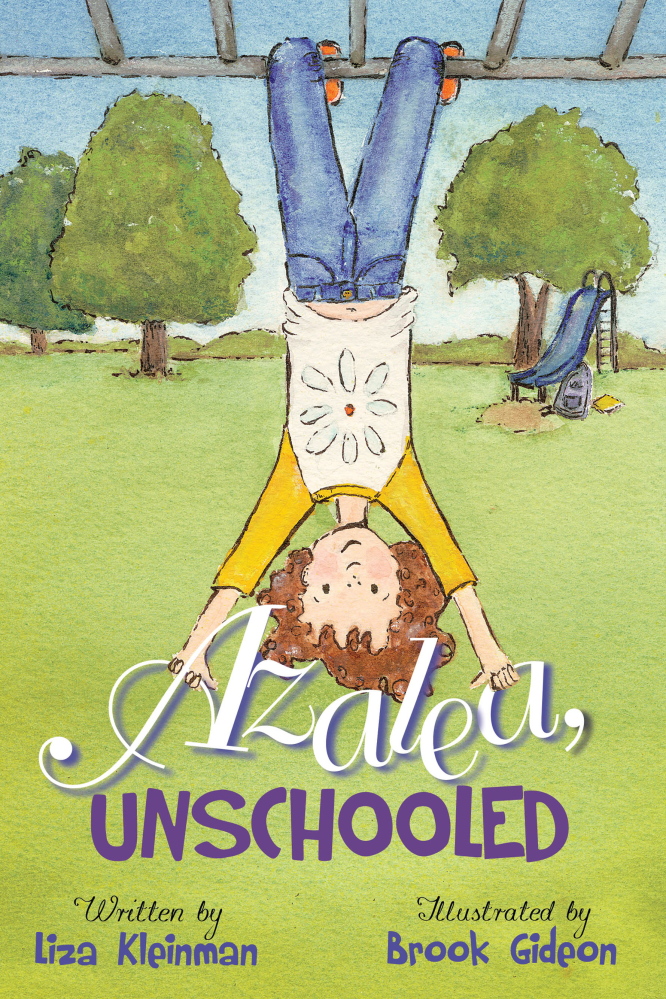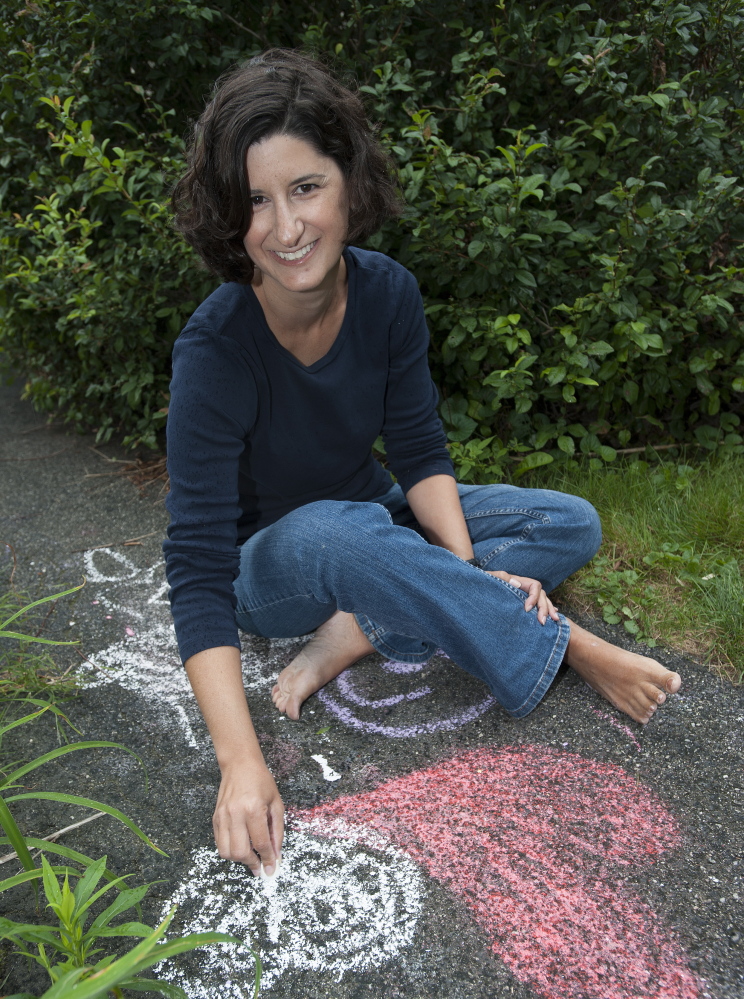Several years ago, writer Liza Kleinman was at the park with her daughter when another little girl told them that she was “unschooled.”
Kleinman searched online and found that “unschooling” is a philosophy of education that advocates self-directed learning without the usual teacher-student model. And that set up an interesting scenario for Kleinman’s first novel, “Azalea, Unschooled” – start with kids who have the freedom to explore and figure things out on their own and then introduce a mystery. The middle-grade novel has a good old-fashioned “whodunnit” that adds just enough suspense that I found myself reading well past my own bedtime to find out what happened.
Kleinman, who has an MFA in fiction writing, has published short fiction in several magazines and in the anthology Writes of Passage. She took the time for an interview about “Azalea, Unschooled,” illustrated by Brook Gideon and released in May by Islandport Press.
Q: Why did you choose to write about unschooling through fiction?
A: I think that people who homeschool, and especially who unschool, have dispensed with the rules the rest of us have agreed upon. And I’m really interested in that – when somebody says, “I don’t need to do that just because everybody else does.” I admire that. And I like the idea that everything you do should be an opportunity to learn. My daughter goes to public school, but I like to think that in all the other hours we unschool.
Q: Did you get to know an unschooling family to get all these insider details right, like the kids’ interests in boat building?
A: The details really just come from the observations I’ve made during 16 years of living in Portland. I remember a public boat-building activity on Munjoy Hill, years ago.
Q: And modern dance lessons. And that nasty drink switchel…
A: I didn’t realize switchel was an authentic detail about unschooling life. That was just luck!
Q: But despite all these convincing details, both about unschooling and about living in Portland, there are also more universal themes that make this a book appealing for a much wider audience.
A: Yes. The book explores how families work, how parents can be loving and well-intentioned and imperfect, and how kids can be loving and well-intentioned and imperfect. And how, as one character in the novel says, there are all kinds of ways to learn a lesson.
Q: What did you learn through the process of writing the novel?
A: When I wrote the first draft, it was mostly a series of vignettes about the family exploring both the city of Portland and unschooling. I had developed characters, but I kind of forgot about plot. My editor at Islandport Press, Melissa Kim, very kindly told me that more needed to happen. So I came up with an idea for a rewrite, adding in some tension: The father’s tour-bus business is being sabotaged. But why? And by whom? I was a couple chapters in and still didn’t know who the culprit was. I brought what I had to my writers’ group, and after reading two chapters, they knew. And then it all made sense. I just hadn’t seen it yet.
Q: Is there any thematic significance of the book being set in Portland?
A: I think of Portland, and of Maine in general, as a place that supports nontraditional choices. It’s one of the things I love about living here. It seemed like the perfect setting for a book about a family figuring out how they want to live. It’s also a city with a strong sense of place and community, and those are extremely important to Azalea. She wants very badly to stay in Portland (who wouldn’t?). And in order to do that she needs to solve the mystery that will save her family and save the day.
Q: Do you have any events coming up?
A: I’ll be signing books from 9 to noon at the Books in Boothbay book fair on July 11.
Amy Paradysz is freelance writer, book editor, and homeschooling mom from Scarborough. She can be reached at:
amyparadysz@gmail.com
Send questions/comments to the editors.





Success. Please wait for the page to reload. If the page does not reload within 5 seconds, please refresh the page.
Enter your email and password to access comments.
Hi, to comment on stories you must . This profile is in addition to your subscription and website login.
Already have a commenting profile? .
Invalid username/password.
Please check your email to confirm and complete your registration.
Only subscribers are eligible to post comments. Please subscribe or login first for digital access. Here’s why.
Use the form below to reset your password. When you've submitted your account email, we will send an email with a reset code.